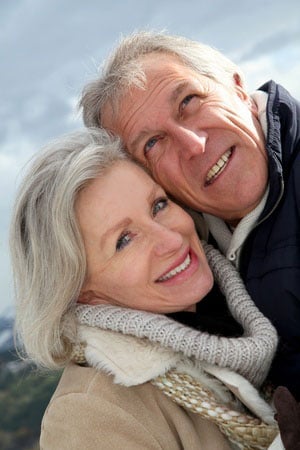 As November in Cincinnati rolls on toward winter, local seniors may start noticing a few seasonal changes of their own as they face some unique challenges in the cold months.
As November in Cincinnati rolls on toward winter, local seniors may start noticing a few seasonal changes of their own as they face some unique challenges in the cold months.
As aging causes the skin to thin out and lose its elasticity, dry skin is a common wintertime complaint for many older adults and should be a focus when managing senior healthcare. For seniors, the colder, dryer air brings with it not just snow and holiday cheer, but a whole season of itchy, flaky skin.
Common Cold-Weather Skin Problems
Xerosis is a persistent itchiness that is not accompanied by a rash caused by dry skin.
Seborrhea dermatitis is another common condition. It presents as scaly, red patches of skin that often affects the scalp, eyebrows, nose and chest. The cause is unknown, but it tends to worsen during the cold months.
While these conditions may seem, like holiday shopping or Christmas parties, to be just another part of the season, try out our tips for improving skin health when the temperature drops before you resign yourself to living with the itchiness.
Moisturize, Moisturize, Moisturize
It really can’t be said enough: as you age your skin loses moisture. Lotion is an effective barrier to help retain it, but there are some additional moisturizing facts that seniors should keep in mind:
- Stay away from scented lotions or ointments. They can irritate and actually make skin problems worse. Look for moisturizing products that are hypoallergenic or designed for sensitive skin, instead.
- Opt for a thick lotion to get an extra layer of protection against the cold. When shopping for lotions, turn the bottle upside down. If the lotion sticks, it is a good choice for winter senior healthcare. Creams and ointments offer better coverage than a traditional body lotion.
- Apply petroleum jelly to tough spots like elbows, knees and heels. If your hands are extra dry, rub the jelly on before bed, then cover them with socks or gloves.
Ideally, you should apply lotion within three minutes of bathing as moisturizing while the skin is damp will seal in the water.
Drink Plenty of Water
You probably already know that the human body is made up of 60 percent water, but you may not realize that dry skin, like thirstiness, can be a sign of dehydration. If you are not drinking enough water, your brain will withhold the moisture to the skin, so it can supply the more critical organs.
The old school rule of eight glasses a day is one way to make sure you get enough water, but drink as much as it takes to keep from feeling thirsty all the time.
Avoid Hot Water
While comforting on a cold morning (or evening), hot showers and baths zap the moisture out of your skin. They can also make sensitive areas itchy during the winter. Stick with lukewarm water as much as possible, especially when washing your hands. If you do need to take a hot shower or bath, keep your time in the water short and moisturize immediately afterwards. When you dry off, pat your skin instead of rubbing it.
Humidify the Air
Adding a humidifier to your home increases the amount of moisture in the air and fights dry skin naturally. Use caution if you decide to humidify, however. Poorly cleaned humidifiers can introduce bacteria and fungus into the environment that may make seniors sick, so make sure you give yours a thorough cleaning at the beginning and end of every season and keep up maintenance while you’re using it.
Dress Wisely
Use common sense when dressing. Wool can be an irritating fabric for many people, so if your hands are dry, stick with linen or cotton gloves. You can wear more than one pair if your hands get cold. Also consider wearing cotton undergarments as a protective barrier against itchy sweaters and pants.
The skin is a reflection of overall senior healthcare, so finding ways to stay healthy is part of the battle. Exercise regularly with your doctor’s approval and eat right– your skin will love you for it.












